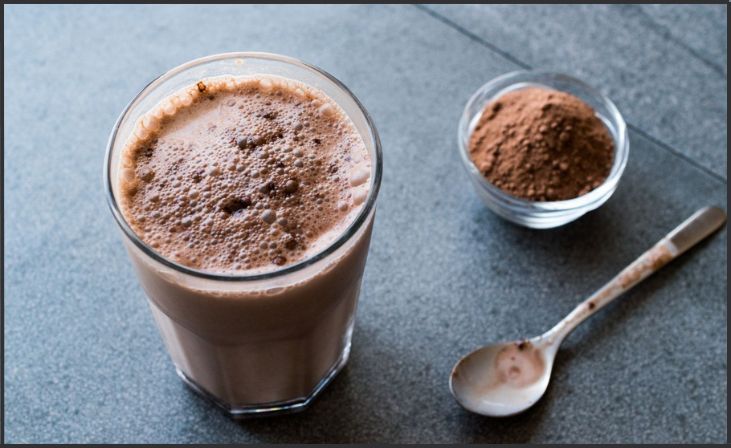In the quest for rapid weight loss, adopting healthy meal plans for rapid weight loss. In today’s fast-paced world, where convenience often trumps nutrition, it’s essential to strike a balance between shedding pounds swiftly and nourishing your body adequately.
This article delves into the world of healthy meal plans designed to kickstart your weight loss journey. We’ll explore the fundamental principles of these plans, emphasizing the importance of balanced nutrition, portion control, and mindful eating.
By the end of this read, you’ll have valuable insights into creating a sustainable meal plan that not only helps you achieve your weight loss goals but also promotes overall well-being. Get ready to embark on a transformative journey towards a healthier you.
Now, let’s delve into specific meal plans designed to support rapid weight loss while ensuring nutritional adequacy and long-term sustainability.
Meal Plan 1: Mediterranean Delights

Indulge in the flavors of the Mediterranean with Meal Plan 1: Mediterranean Delights, a delectable and nutritious approach to rapid weight loss. This meal plan revolves around the renowned Mediterranean diet, celebrated for its health benefits and weight management properties. For breakfast, start your day with a Greek yogurt parfait adorned with mixed berries and a sprinkle of chia seeds, accompanied by whole-grain toast topped with avocado and cherry tomatoes.
Lunch features a refreshing grilled chicken or chickpea salad boasting an array of colorful vegetables, complemented by a side of quinoa tabbouleh. For dinner, savor the taste of a baked fish, such as salmon or cod, infused with lemon and herbs, served alongside roasted vegetables seasoned with olive oil and garlic. Snack on a handful of mixed nuts or olives, and incorporate beverages like herbal teas or water infused with citrus slices. This Mediterranean-inspired meal plan not only tantalizes the taste buds but also ensures a well-rounded intake of essential nutrients, making weight loss a flavorful and satisfying journey.
For More- LOW-CARB DIETS FOR SUSTAINABLE WEIGHT LOSS
Breakfast:
- Greek yogurt parfait with mixed berries and a sprinkle of chia seeds.
- Whole-grain toast with avocado and cherry tomatoes.
Lunch:
- Grilled chicken or chickpea salad with a variety of colorful vegetables.
- Quinoa tabbouleh as a side dish.
Dinner:
- Baked fish (such as salmon or cod) with lemon and herbs.
- Roasted vegetables (zucchini, bell peppers, and eggplant) seasoned with olive oil and garlic.
Snacks:
- Mixed nuts or a handful of olives.
- Fresh fruit, like an apple or a handful of grapes.
Beverages:
- Herbal teas or water infused with citrus slices.
Meal Plan 2: Plant-Powered Bliss
Embark on a journey of health and vitality with Meal Plan 2: Plant-Powered Bliss, a delightful and nutrient-packed approach to rapid weight loss. Centered around a plant-based diet, this meal plan maximizes the benefits of fruits, vegetables, and whole grains to support both weight loss and overall well-being. Kickstart your day with a vibrant smoothie bowl, blending spinach, banana, berries, and a scoop of plant-based protein, or opt for overnight oats with almond milk, topped with sliced almonds and fresh fruit.
Lunch introduces a lentil and vegetable stir-fry paired with nourishing brown rice, while dinner delights with stuffed bell peppers featuring a wholesome mix of quinoa, black beans, and veggies. Snack wisely with options like hummus and veggie sticks or a small serving of air-popped popcorn. Stay hydrated with green tea or infused water featuring cucumber and mint. This plant-powered meal plan not only supports rapid weight loss but also ensures a satisfying and delicious culinary experience, proving that nourishing your body can be both joyful and effective.
Breakfast:
- Smoothie bowl made with spinach, banana, berries, and a scoop of plant-based protein.
- Overnight oats with almond milk, topped with sliced almonds and fresh fruit.
Lunch:
- Lentil and vegetable stir-fry with brown rice.
- Mixed green salad with a variety of colorful vegetables and a tahini dressing.
Dinner:
- Stuffed bell peppers with quinoa, black beans, and veggies.
- Grilled portobello mushrooms as a savory side.
Snacks:
- Hummus with carrot and cucumber sticks.
- A small serving of air-popped popcorn.
Beverages:
- Green tea or infused water with cucumber and mint.
Meal Plan 3: High-Protein Power

Fuel your journey to rapid weight loss with Meal Plan 3: High-Protein Power, a robust and satiating approach designed to support muscle maintenance and overall well-being. This meal plan prioritizes protein-rich sources to enhance feelings of fullness and aid in effective weight loss. Begin your day with scrambled eggs or tofu paired with sautéed spinach and cherry tomatoes, accompanied by whole-grain toast or a small serving of quinoa. Lunch features a satisfying grilled turkey or tempeh wrap with a whole-grain tortilla, lettuce, and salsa, complemented by an edamame and vegetable salad on the side.
For dinner, enjoy baked chicken or a plant-based protein like seitan, accompanied by roasted sweet potatoes and steamed broccoli or green beans. Snack wisely with options such as cottage cheese with pineapple chunks or Greek yogurt with a drizzle of honey. Stay nourished and hydrated with a protein smoothie made with almond milk and a handful of berries. This High-Protein Power meal plan not only promotes rapid weight loss but also ensures a delicious and protein-packed journey towards achieving your fitness goals.
Breakfast:
- Scrambled eggs or tofu with sautéed spinach and cherry tomatoes.
- Whole-grain toast or a small serving of quinoa.
Lunch:
- Grilled turkey or tempeh wrap with whole-grain tortilla, lettuce, and salsa.
- Edamame and vegetable salad on the side.
Dinner:
- Baked chicken or a plant-based protein (such as seitan) with roasted sweet potatoes.
- Steamed broccoli or green beans.
Snacks:
- Cottage cheese with pineapple chunks.
- Greek yogurt with a drizzle of honey.
Beverages:
- Protein smoothie with almond milk and a handful of berries.
Incorporating Healthy Habits for Success

While meal planning is a crucial component of rapid weight loss, it’s equally important to adopt healthy habits that complement your dietary efforts.
1. Regular Physical Activity:
Regular physical activity is a cornerstone of a healthy lifestyle, contributing not only to physical fitness but also to overall well-being. Engaging in consistent exercise provides a myriad of benefits for the body and mind. Whether through cardiovascular exercises, strength training, or flexibility routines, regular physical activity helps maintain a healthy weight by burning calories and increasing metabolism. Beyond weight management, exercise plays a crucial role in enhancing cardiovascular health, improving muscle tone, and boosting endurance.
Additionally, the psychological benefits are profound, as physical activity stimulates the release of endorphins, reducing stress, anxiety, and depression. Establishing a routine of regular exercise promotes better sleep, enhances cognitive function, and supports a positive mood. To reap the full spectrum of health benefits, it is essential to find enjoyable activities that suit individual preferences, making physical activity a sustainable and integral part of daily life.
2. Mindful Eating:
Mindful eating is a practice that encourages a thoughtful and intentional approach to consuming food, fostering a deeper connection between mind and body during meals. Rather than mindlessly consuming food in a hurry or while distracted, mindful eating involves being fully present and attentive to the sensory experience of eating. This practice emphasizes paying attention to hunger and satiety cues, savoring flavors, textures, and aromas, and appreciating the act of nourishing the body.
By avoiding distractions such as television or electronic devices during meals, individuals can better tune into their bodies, recognizing when they are truly hungry and when they have had enough. Mindful eating has been associated with various health benefits, including weight management, improved digestion, and a healthier relationship with food. It encourages a non-judgmental awareness of food choices, fostering a more positive and balanced approach to eating that extends beyond calorie counting to embrace a holistic view of nourishment and well-being.
3. Quality Sleep:
Quality sleep is a fundamental pillar of overall health and well-being, playing a crucial role in various physiological and cognitive functions. Adequate and restful sleep is essential for the body to repair and regenerate tissues, consolidate memories, and maintain optimal immune function. The importance of quality sleep extends beyond mere duration; it involves achieving the various sleep cycles, including deep and REM (rapid eye movement) sleep. These cycles are integral for cognitive performance, emotional well-being, and hormonal balance.
Lack of quality sleep has been linked to a range of health issues, including impaired concentration, weakened immune function, and an increased risk of chronic conditions such as obesity and cardiovascular disease. Establishing healthy sleep hygiene practices, such as maintaining a consistent sleep schedule, creating a comfortable sleep environment, and limiting screen time before bedtime, can contribute to improved sleep quality and, subsequently, enhanced physical and mental health. Prioritizing and optimizing sleep is a key component of a holistic approach to well-being.
4. Stress Management:
Stress management is a crucial aspect of maintaining a balanced and healthy lifestyle in the face of life’s inevitable challenges. Stress, whether from work, relationships, or other sources, can have a profound impact on both physical and mental well-being. Effective stress management involves adopting strategies and practices to cope with and reduce stress levels. This can include mindfulness techniques, such as meditation and deep breathing exercises, which help to calm the mind and promote relaxation.
Engaging in regular physical activity, maintaining social connections, and ensuring adequate sleep are also vital components of stress management. Additionally, setting realistic goals, prioritizing tasks, and learning to say no when necessary can help prevent feelings of overwhelm. Recognizing the signs of stress and proactively implementing coping mechanisms not only enhances mental resilience but also contributes to overall physical health. By integrating stress management techniques into daily life, individuals can foster a sense of balance and better navigate the demands of a busy world, ultimately promoting long-term well-being.
For More- HEALTHY VEGAN RECIPES FOR WEIGHT LOSS
Conclusion
Embarking on a journey of rapid weight loss requires a thoughtful and sustainable approach. By adopting healthy meal plans that prioritize nutrient-dense foods, portion control, and hydration, you can achieve your weight loss goals without compromising your overall health. Pairing these meal plans with regular physical activity and positive lifestyle habits will not only help you shed pounds but also contribute to a happier and healthier you. Remember, the key is to embrace a lifestyle that supports your well-being in the long run.
FAQs
Absolutely! It’s essential to have a balanced approach. Occasional treats can be a part of your plan, as long as you maintain moderation.
Results vary from person to person. Generally, you can expect to see some initial changes in a few weeks, but long-term success may take several months.
Highly processed foods, sugary beverages, and excessive amounts of added sugars and fats should be limited in your diet.

Leave a Reply